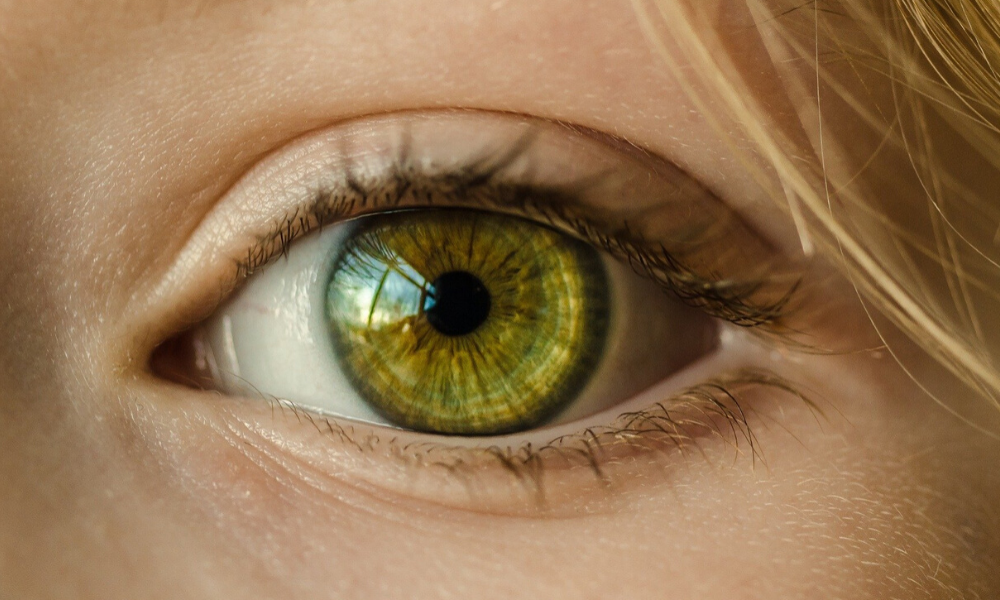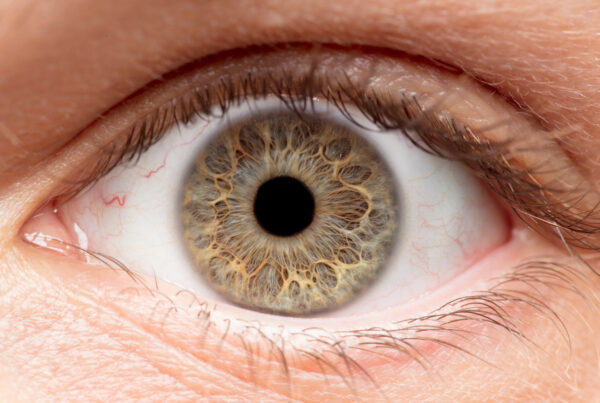
One of the most common complaints we hear from patients is that their vision isn’t stably clear—it fluctuates. They can describe this in many ways. They may say, “My vision comes and goes”; “I have good days and bad days”; or “My glasses just don’t work right all of the time”. Their vision may fluctuate from day-to-day or even hour-by-hour. Many patients notice worse vision when doing certain tasks or activities. However, they describe the pattern of these fluctuations there are some main causes that you should be aware of. The following is a list of the top 3 most common causes of these changes in vision and the patterns associated with them.
Dry Eyes
The vast majority of the time the cause of fluctuations in vision is an irregular or unhealthy surface of the eye. This can be caused by a lot of things, but the most common cause is dry eyes. In a healthy eye there are three main layers to the tears that coat the surface of your eye. The eye itself produces a protective layer of mucous called the mucin layer. The tear gland, called the lacrimal gland, is underneath the outer part of the upper eyelid and produces the watery layer to the tears. Within the eyelids themselves there are tiny glands called the Meibomian Glands that secrete an oily layer to the tears. This oil coats the surface of the watery layer to help the tears spread evenly over the surface of the eye and keep them from evaporating. Each of these components is needed in certain proportions in order to have a healthy ocular surface. If one or more of these layers is deficient then dry spots will begin to develop on the surface of the front clear windshield of the eye called the cornea. Not only does this cause irritation and redness, but without a glassy smooth surface of the cornea the vision will also begin to blur. The more dry spots that develop the more blurred the vision gets. Also, as our eyes get excessively dry there are signals that are sent to our brain to produce more watery tears, but in some patients this can lead to too many tears that leads to watery eyes that further blur the vision.
There are some common patterns that you may notice if your fluctuating vision is from dry eyes. First, dryness tends to worsen with prolonged reading or other “near activities”, such as computer-work, sewing, or knitting. Second, patients will notice a pattern where when the vision is blurry if they blink several times it clears up temporarily. This is because when you blink, the eyelids spread your tears out over the surface, which can eliminate the dry spots and clear the vision. This is usually only temporary, however, as new dry spots tend to re-develop. Also, as the dryness becomes more severe patients will start to notice that even blinking doesn’t help as there is no longer enough tears to redistribute. The patterns will hopefully help you identify if a dry or irregular ocular surface is the cause of your fluctuations. If so, it is safe to use over-the-counter lubricating eye drops without any medication in them up to 4 times per day for several days to see if this helps. If you are still having issues you should contact our office for an evaluation. For severe dry eye patients we are also fortunate to have The Dry Eye Institute in our Creve Coeur location, which allows for more targeted and personalized diagnosis of the causes of your dryness as well as office-based professional treatments. You can call any of our Surevision locations to schedule an appointment.
Diabetes
Diabetes is overwhelmingly common throughout the world and as most everyone knows it arises because the patient’s body can no longer regulate their blood sugar levels. This leads to both very high blood sugar, but also extremely wide fluctuations in blood sugar. The inside structures of the eye are clear. This is what allows light to be transmitted into our eyes so that we can see. Because it’s clear, there isn’t any blood floating around inside of the eye, but the clear fluid in the eye does have nutrients for the cells in our eye including glucose. When the blood glucose levels get too high it spills over into the clear fluid in the eye as well. This causes a swelling of the lens inside of the eye that shifts the focus and blurs the vision. So, if you notice a fluctuation in vision following meals you may want to check your blood sugar or consult your primary care physician to be tested for diabetes. If you already have known diabetes fluctuations in vision may be a sign that you need to work with your doctor to achieve more stable control of your blood glucose.
Fuch’s Corneal Dystrophy
While Fuch’s Corneal Dystrophy is a relatively common condition for Ophthalmologists, it’s definitely not nearly as common as dry eyes or diabetes, so if you’re like most patients this may be something new to you. Basically, this is an eye condition that can cause fluctuating vision by causing swelling in the front clear windshield of the eye, called the cornea. The cornea has to have a very specific amount of water within it to remain clear. If it has too much it becomes swollen and cloudy. In essence, it’s like looking through frosted glass instead of crystal clear glass. The cells in the cornea that maintain this perfect balance are called endothelial cells, and Fuch’s Corneal Dystrophy causes a decreased number of them, resulting in corneal swelling. Patients with Fuch’s dystrophy will often notice that they see clearly during part of the day and not so clearly at other times. Not always, but often, patients will have blurry vision in the morning that improves throughout the day. There are both medical and surgical cornea disease treatments to help restore the stability of the vision.
Other Causes
The above conditions are the 3 most common causes of fluctuating vision, but there are, of course, many others. Keep track of as many details as you can about the changes in your vision including the frequency, the time of day, if it occurs in one eye or both, the activity that you are doing when it happens, etc. You are always an important part of your eye care at Surevision Eye Centers and these details will allow quick diagnosis and customized management of your visual issues. Call to schedule an appointment with one of our trained eye care professionals at Surevision Eye Centers for a consultation and detailed examination to determine the causes of your fluctuations in vision.



